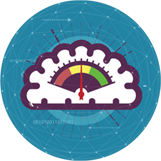Copyright Notice
The linked documents have been provided as a means to ensure timely dissemination of scholarly and technical work on a noncommercial basis. Copyright and all rights therein are maintained by the authors or by other copyright holders, notwithstanding that they have offered their works here electronically. It is understood that all persons copying this information will adhere to the terms and constraints invoked by these copyrights. These works may not be reposted without the explicit permission of the copyright holder.
In Prep/Submitted/Accepted/In Press
- Fawcett, J. M., Levy, B. J., Bergström, Z. M., Bulevich, J. B., Clark, C. A., Hertel, P. T., Hulbert, J. C., MacLeod, C. M., Todorovic, D., van Schie, K., & The Memory Control Consortium. (Accepted in Principle). A Multisite Registered Replication of the Think/No-Think Effect. Nature Human Behaviour.
2023
- Yan, Y., Hulbert., J. C., Zhuang, K., Liu, W., Wei, D., Chen, Q., Qui, J., Anderson, M.C. & Yang, W. (2023). Reduced hippocampal-cortical connectivity during memory suppression predicts the ability to forget unwanted memories. Cerebral Cortex, 33(8), 4189-4201. »Open Access
2022
- Beier, E. J., Janata, P., Hulbert, J. C., & Ferreira, F. (2022). Do you chill when I chill? A cross-cultural study of strong emotional responses to music. Psychology of Aesthetics, Creativity, and the Arts, 16(1), 74-96. »Preprint PDF
2021
- Anderson, M. C. & Hulbert, J. C. (2021). Active forgetting: Adaptation of memory by prefrontal control. Annual Review of Psychology, 72, 1-36. »Open Access
- Liu, P.*, Hulbert, J. C.*, Yang, W., Guo, Y., Qiu, J., & Anderson, M. C. (2021). Task compliance predicts suppression-induced forgetting in a large sample. Scientific Reports, 11, 20166. »Open Access
- Yang, W., Jia, H., Feng, Q., Wei, D., Qiu, J., & Hulbert, J. C. (2021). Functional connectivity between right-lateralized ventrolateral prefrontal cortex and insula mediates reappraisal’s link to memory control. Journal of Affective Disorders, 290, 316-323. »PDF
*equal contribution authorship
2020
- Fawcett, J. M.* & Hulbert, J. C.* (2020). The many faces of forgetting: Toward a constructive view of forgetting in everyday life. Journal of Applied Research in Memory and Cognition, 9(1), 1-18. »PDF
- Hulbert, J. C. & Anderson, M. C. (2020). Does retrieving a memory insulate it against memory inhibition? A retroactive interference study. Memory, 28(3), 293-308. »Open Access
*equal contribution authorship
2018
- Hulbert, J. C. & Anderson, M. C. (2018). What doesn’t kill you makes you stronger: Psychological trauma and its relationship to enhanced memory control. Journal of Experimental Psychology: General. »Open Access
- Rafidi, N. S., Hulbert, J.C., Brooks, P.P., & Norman, K.A. (2018). Reductions in retrieval competition predict the benefit of repeated testing. Scientific Reports, 8, 1174. »Open Access
- Hulbert, J.C., Hirschstein, Z., Brontë, C. A. L., & Broughton, E. (2018). Unintended Side Effects of a Spotless Mind: Theory and Practice. Memory, 26(3), 306-320. »PDF
2017
- Gangnepain, P., Hulbert, J. C., & Anderson, M. C. (2017). Parallel regulation of memory and emotion supports the suppression of intrusive memories. Journal of Neuroscience, 37 (27), 6423-6441. »Open Access
2016
- Hulbert, J. C., Henson, R. N., & Anderson, M. C. (2016). Inducing amnesia through systemic suppression. Nature Communications, 7, 11003. »Open Access
- Manning, J. R., Hulbert, J. C., Williams, J., Piloto, L., Sahakyan, L., & Norman, K. A. (2016). A neural signature of contextually mediated intentional forgetting. Psychonomic Bulletin & Review, 23(5), 1534–1542. »Open Access
2015
- Hulbert, J. C., & Norman, K. A. (2015). Neural differentiation tracks improved recall of competing memories following interleaved Study and retrieval practice. Cerebral Cortex, 25(10), 3994-4008. »Abstract »PDF
- Benoit, R. G., Hulbert, J. C., Huddleston, E., & Anderson, M. C. (2015). Adaptive top-down suppression of hippocampal activity and the purging of intrusive memories from consciousness. Journal of Cognitive Neuroscience, 27(1), 96-111. »Abstract »PDF
2012
2011
- MacLeod, M. D., & Hulbert, J. C. (2011). Sleep, retrieval inhibition, and the resolving power of human memory. In A. S. Benjamin (Ed.), Successful Remembering and Successful Forgetting: Essays in Honor of Robert A. Bjork. New York: Elsevier. »Abstract »Google Books
2009
2008
- Papafragou, A., Hulbert, J. C., & Trueswell, J. (2008). Does language guide event perception? Evidence from eye movements. Cognition, 108(1), 155-184. »Abstract »PDF
- Hulbert, J. C., & Anderson, M. C. (2008). The role of inhibition in learning. In A. S. Benjamin (Ed.), Human Learning: Biology, Brain, and Neuroscience. North-Holland: Elsevier. »Abstract »PDF
2007
2006
2004
- Hulbert, J. C. (2004). The role of scene and syntax in mental verb learning. Res: Journal of Undergraduate Research and Writing, 1, 74-97. »Abstract
